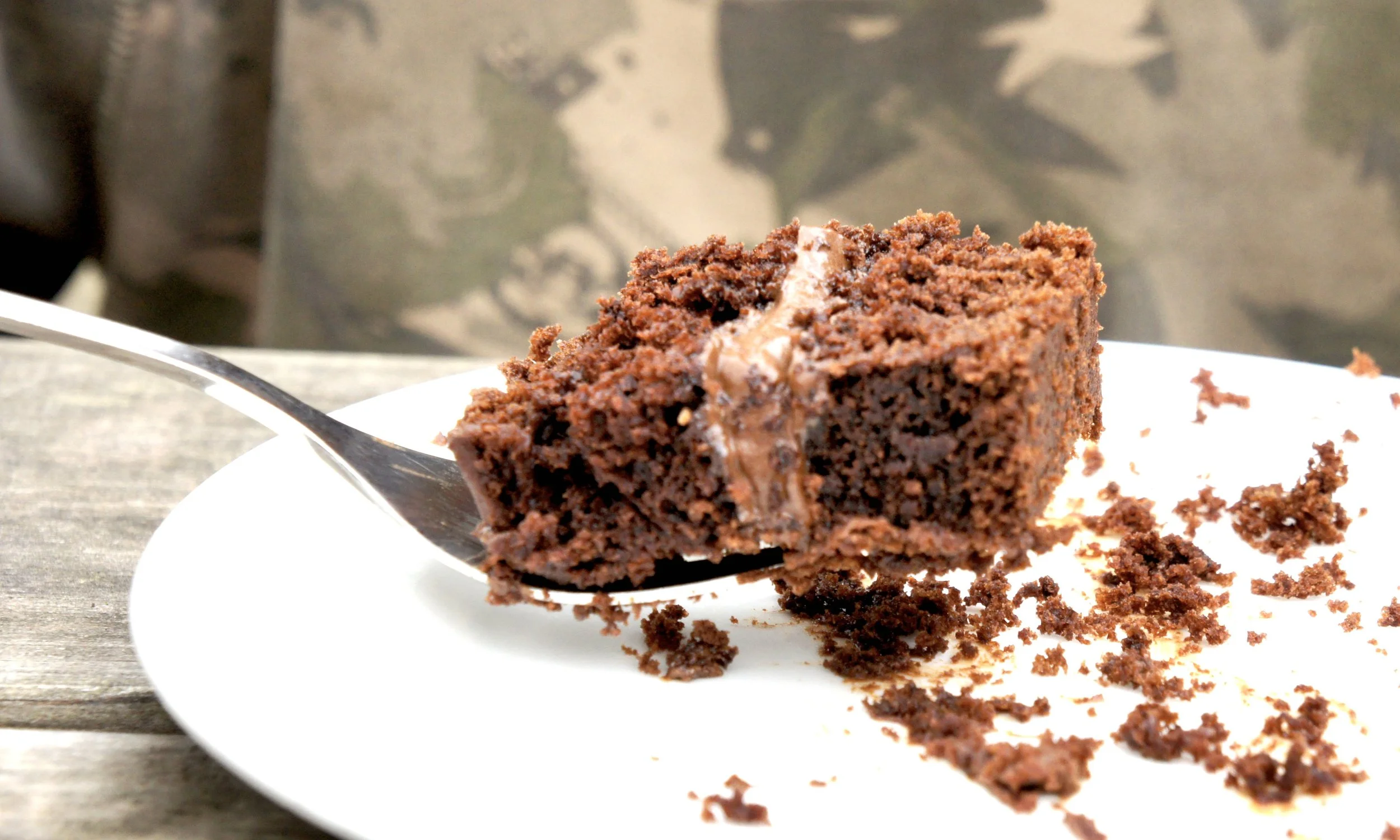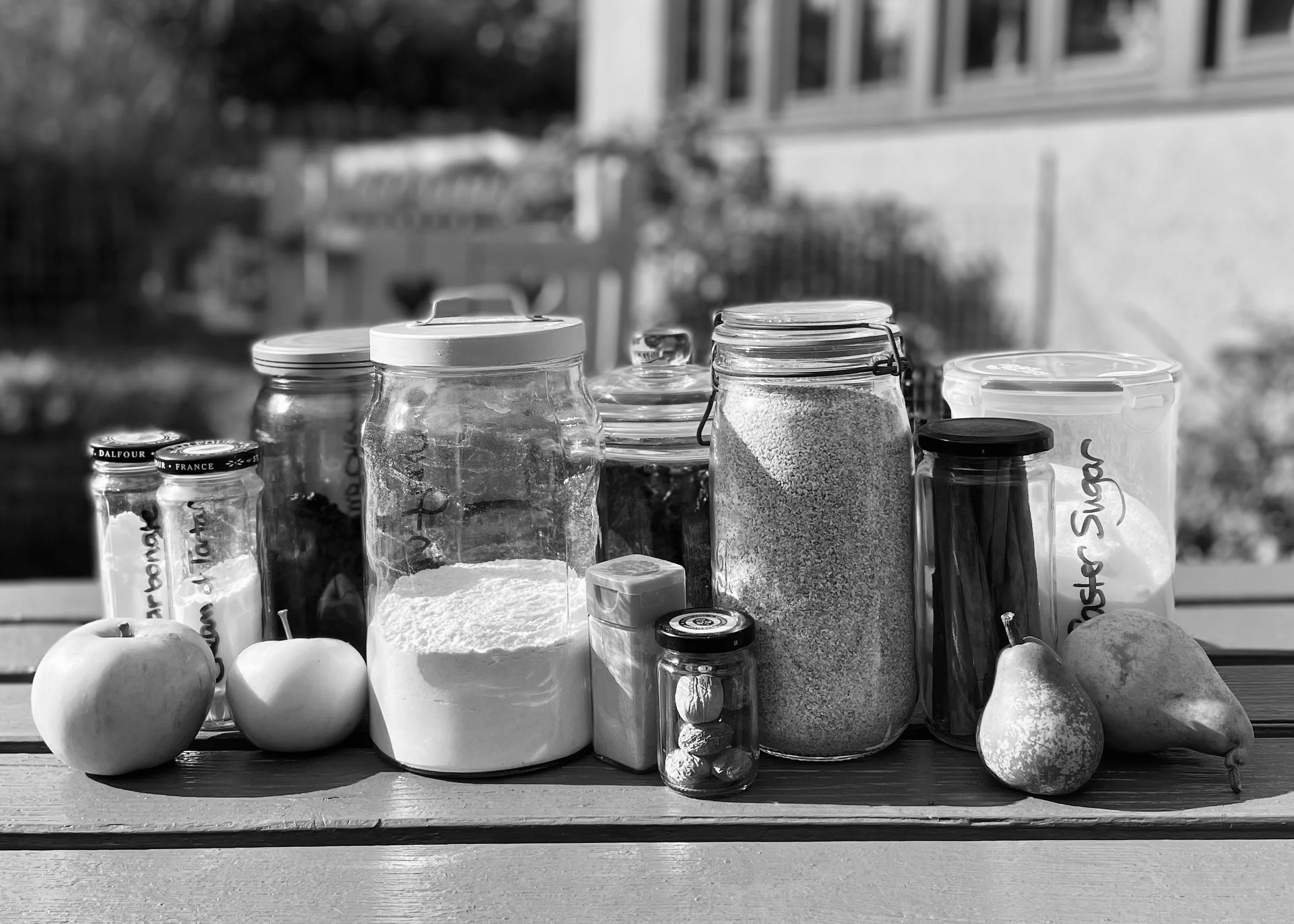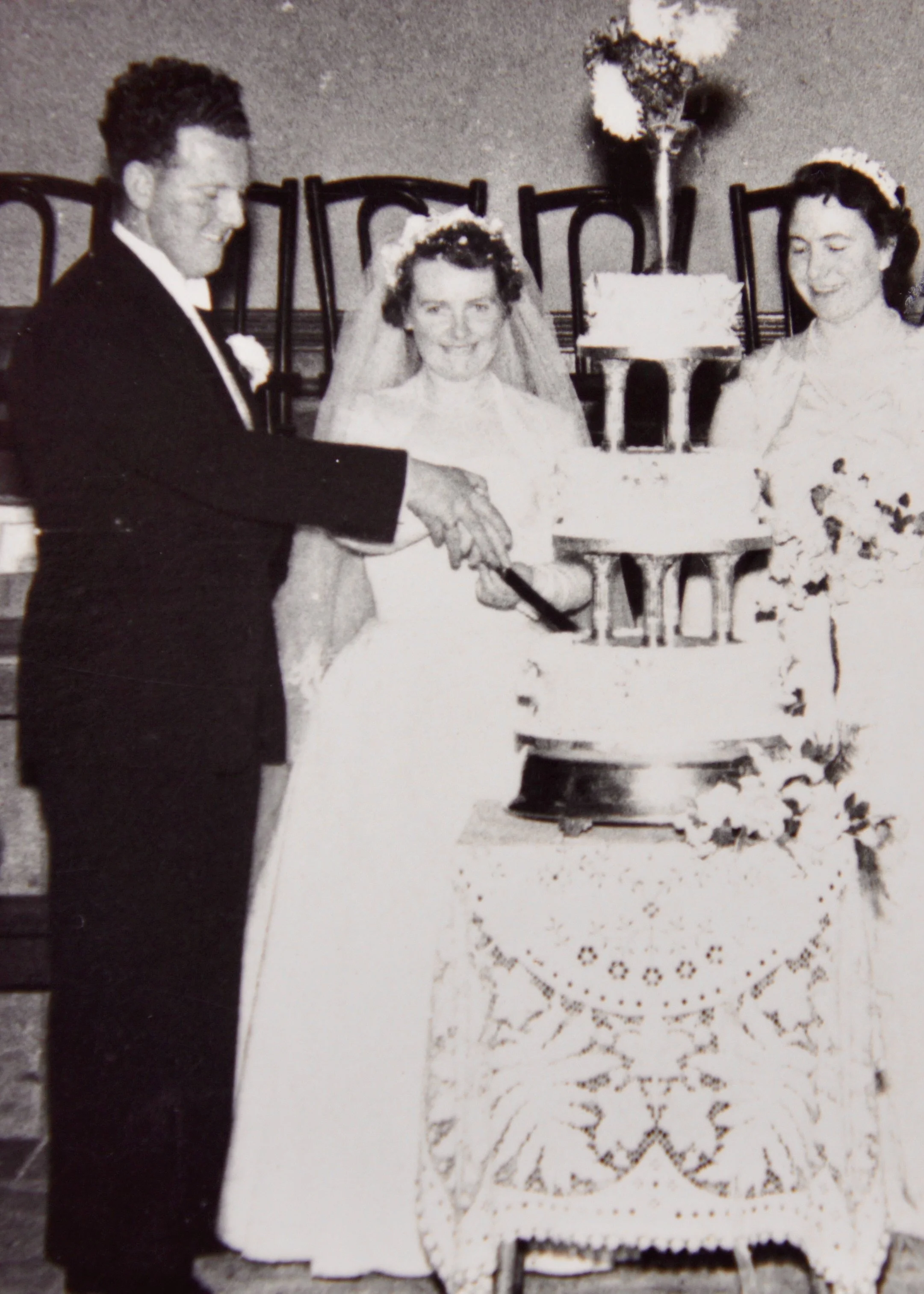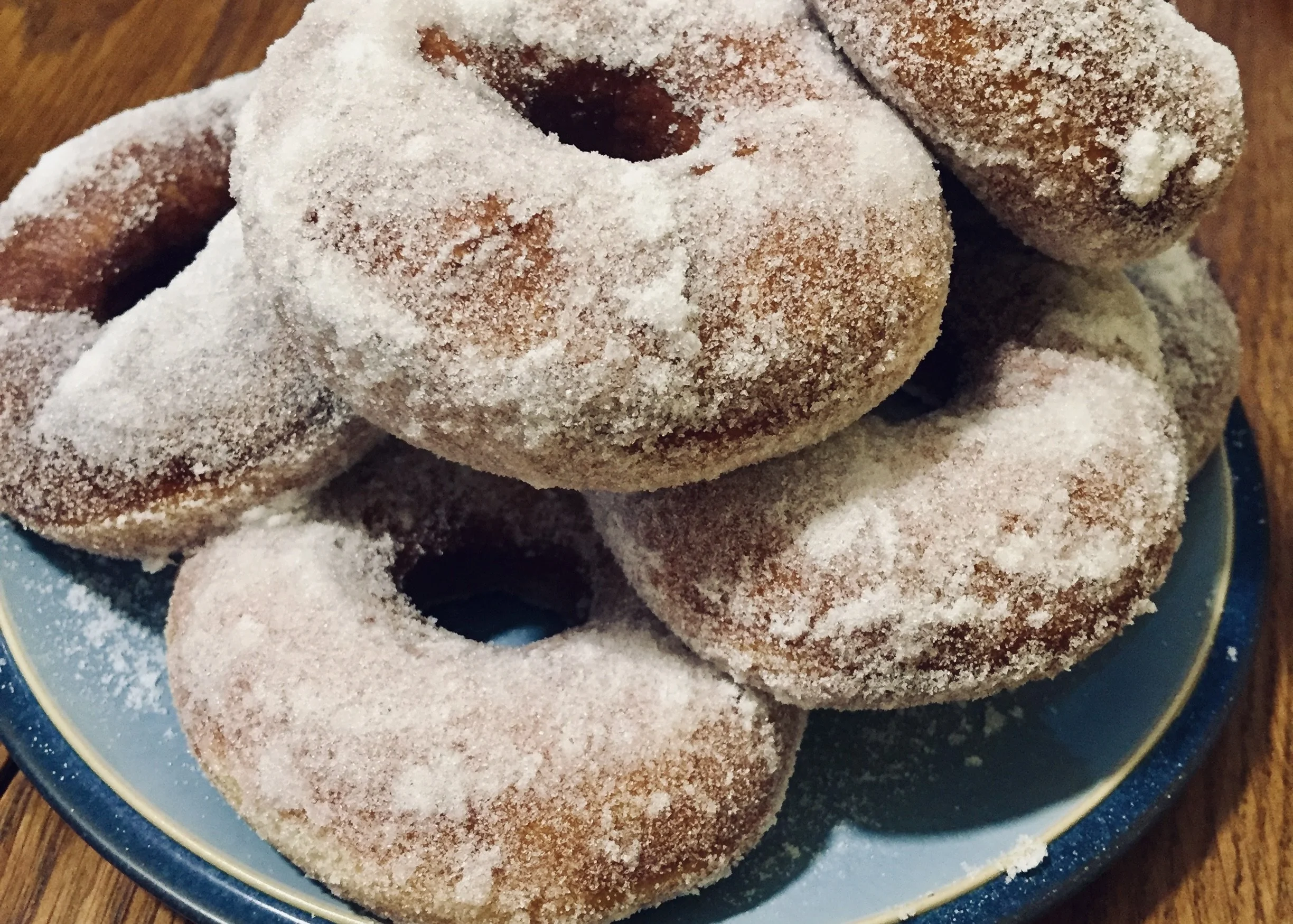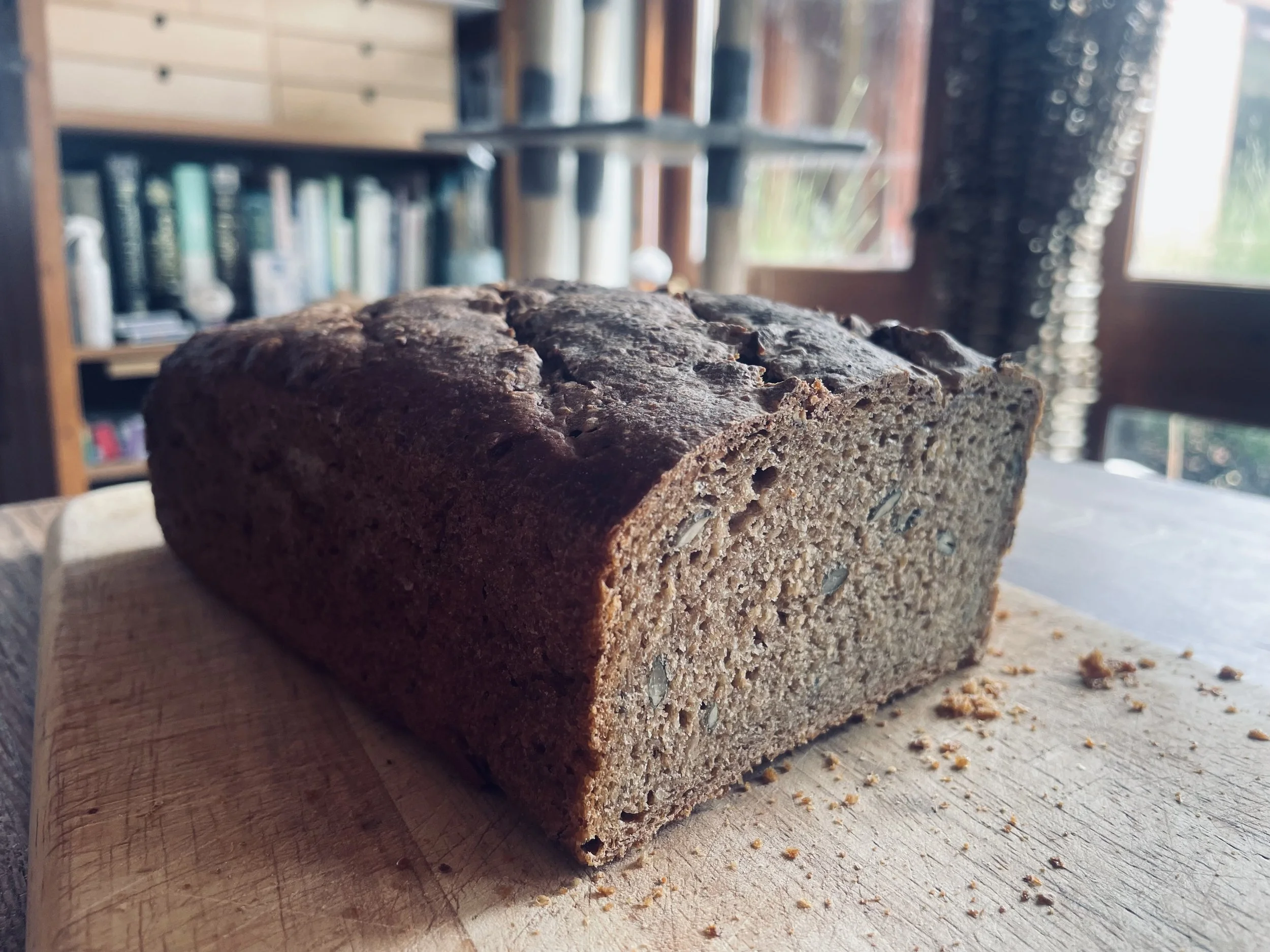The Cake Model: A Metaphor for Therapy, Identity, and Being OK
By Margot Williamson, September 2025I’ve always loved baking, and I’ve always loved metaphors. Baking gives me comfort, and metaphors help me to make meaning. So perhaps it’s no surprise that one day, while reflecting on identity and how life often offers different environments for us to grow in, I began to see a connection between people and the cakes I love to bake.
At first, it may sound light or playful. But for me, this metaphor carries a deep seriousness. It is a way of holding complex truths about identity, power, ecology, and lived experience in a form that remains human, warm, and accessible. It is also a way to sit and contemplate myself and others: keeping in mind that each of us is made up of many layers, shaped by many forces, and always worthy of care.
“You are OK”
The Ingredients: Identity
Every cake begins with ingredients. What kind of cake you get depends on the mix: rich fruitcake, light and delicate sponge, luxuriant chocolate, or something entirely unique.
Our personal “ingredients” might include:
Age
Gender identity
Sexual orientation
Neurodiversity
Cultural or ethnic background
Disability
Education and language
Economic situation and class background
Religion or spirituality
Life experiences, values, and personality traits
No single ingredient defines us. It’s the combination that matters.
In therapy, part of the work may involve naming and honouring these ingredients. Some people come with pride in certain aspects of who they are, and shame about others. Therapy can be a safe space to hold both with compassion.
We can also see that ingredients don’t appear in isolation — they are grown, gathered, and passed down within particular families, communities, cultures, and ecologies. What’s in the cupboard depends on the systems we are born into.
“Notice your ingredients”
And still, whatever your ingredients, here is the central message from Transactional Analysis: you are OK. This is the starting point I hold in the therapy room.
The Baking: Power, Privilege, and Oppression
Of course, ingredients alone don’t make a cake. They need to be baked — and how that happens makes all the difference.
In life, this “baking process” reflects the influence of power, privilege, and oppression. Some cakes rise evenly in well-functioning ovens, supported by the optimum temperature and conditions. Others are exposed to too much or too little heat and end up burned around the edges or unable to rise fully. Some have never been given the right conditions to succeed at all.
Here, I am reminded that no oven is neutral. The conditions we are baked in are not just personal or family-based — they are influenced by wider systems: social structures, cultural expectations, economic realities, and ecological forces. The very air circulating in the oven can either nurture us or limit our growth.
Sometimes the oven was unpredictable — sometimes nurturing, sometimes scalding. These conditions can leave cracks or burns in the cake. But trauma does not erase our worth. Even when the oven has failed us, the core of us — our “OK-ness” — remains.
“How we are baked shapes, but does not define, our worth”
In therapy, I will sit with clients as they gently rediscover this truth: that even when life has left its marks, their value is unshaken.
The Serving Dish: Context and Environment
Finally, every cake has to be placed somewhere. Some are celebrated on elegant cake stands, admired and appreciated. Others are served on simple but functional plates, safe and steady. And some may be left overlooked or set aside. For those who have experienced trauma, the dish may also feel unstable or unsafe.
This reminds me that our sense of self is always in relationship with the environment around us — family, community, culture, society, and ecology. The dish is never neutral; it reflects those larger contexts. Holding this in mind helps me stay aware of how we are shaped by, and respond to, the systems around us.
“Reflect on the dish you’re sitting on now or have experienced in the past”
And still, whatever dish you’ve been placed on, it doesn’t change your worth. You are still OK.
Why This Matters in Therapy
In therapy, I use this metaphor to help me — and sometimes my clients — remember the whole picture. It encourages us to ask:
What are my ingredients? Which do I celebrate, and which do I hide?
How has life baked me? What systems or conditions shaped me, for better or worse?
Where am I sitting right now? What does my current environment allow or deny me?
And how does remembering “I’m OK, You’re OK” change the way I see myself?
For me, this cake metaphor is more than a homely image. It is a way of holding serious truths: that our identities are layered and complex, that we are shaped by the systems and environments we live within, and that our histories leave marks but never define our worth.
This is the perspective I bring into the therapy space: that whoever you are, however you were baked, and wherever you have been placed, you are OK — and together we can explore how to live more fully in that truth.
“You are still whole, still OK – even if life has left its marks”
A Gentle Invitation
If you try this metaphor for yourself, you might take a moment to picture your own cake.
Notice your ingredients.
Acknowledge the oven you were baked in.
Reflect on the dish you’re sitting on now.
And then remind yourself: your ingredients are all valid; your baking didn’t erase your worth; your placement doesn’t determine your value.
When I sit with a client, I hold this model quietly in mind. Not as a quick answer or a label, but as a gentle reminder that each person is complex, shaped by many forces, and always, always worthy of care.
In Transactional Analysis, we hold the belief “I’m OK, You’re OK.” Whoever you are, whatever you’ve been through, however you’ve been baked or served — you are OK.
“You are OK”
If this way of thinking resonates with you, therapy with me may offer a space to explore your own self — your ingredients, your baking, and your place in the world — with curiosity, compassion, and care.

